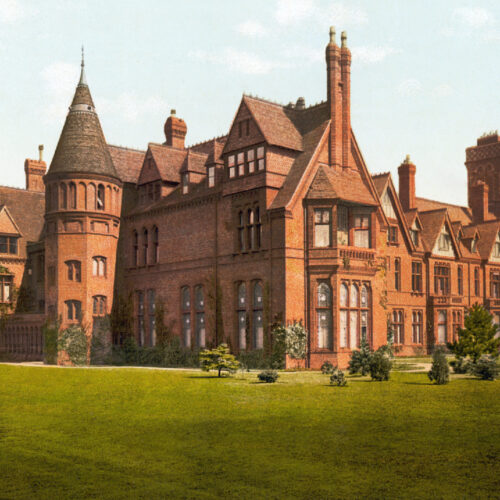

Girton College at the University of Cambridge has educated and employed a host of remarkable humanists and freethinkers, many of whom have had a significant impact on the wider world. From those who have exemplified humanist values, to those who have actively promoted humanism in the public sphere, both Girton and Newnham colleges feature richly in humanist heritage. A number of notable members of the ethical societies attended Girton College, with some also teaching there. L. Susan Stebbing, a former President of Humanists UK, lectured there, and Barbara Wootton – a longtime Vice President – was a graduate.
Girton began as the ‘College for Women at Benslow House’ in Hitchin, established by Emily Davies, Frances Buss, Dorothea Beale, and Barbara Bodichon with the ultimate aim of achieving full membership of the University of Cambridge. Although this didn’t happen until 1948, it was pioneering in its efforts to open up higher education to women. Among these who studied there were:
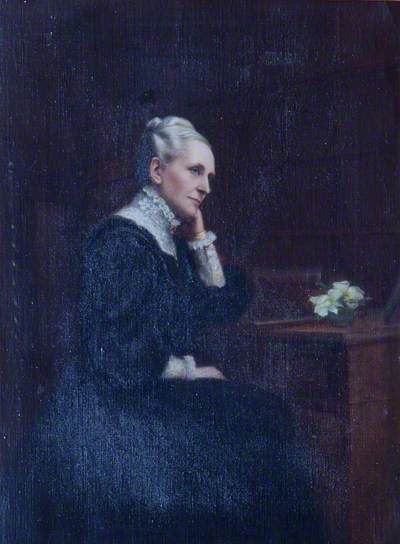
E.A. Manning (1828–1905)
Elizabeth Adelaide Manning was a writer, editor, and founding member of the Froebel Society. A close friend of Emily Davies, she was one of the first students to attend Girton College, and later became an active member of its executive committee. Manning was prominent in the National Indian Association in Aid of Social Progress in India (NIA), and known for work to welcome and support Indians living in London. She was also a champion of women doctors training in Britain to help women in India. A member of the West London Ethical Society, Manning’s Times obituary noted that she ‘rigidly excluded religion and politics from her work’.
Joan Gruner (1848–1936)
Joan Frances Ottilie Gruner was born in Estonia, and attended Girton College 1874-77. She later gained a master’s degree from Trinity College, Dublin, and became Principal of Brackenhurst, a private school in Hindhead, Surrey, at which Julia Strachey was a pupil. Both Joan and her sister, Alice, were members of the West London Ethical Society. Following her death in 1936, a correspondent of the Times wrote that Joan Gruner ‘loved flowers and books and any opportunity of teaching, but most of all she loved the poor and the afflicted. She had often to be saved by her friends from giving away the little she possessed to some family in distress.’
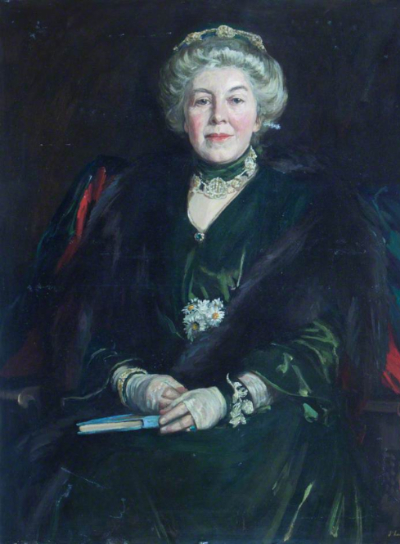
E.E. Constance Jones (1848–1922); tutored by Alice Gruner (1846–1929)
Emily Elizabeth Constance Jones was an influential philosopher and educator, who was Mistress of Girton 1903-16. Along with Elizabeth Phillips Hughes, a Welsh pioneer of women’s education and first Principal of the Cambridge Training College for Women (now Hughes College), she was on the committee of the Cambridge Ethical Society, one of the first in the UK. Her tutor for entrance to Girton was Alice Gruner, a member of the West London Ethical Society, and founder of the Women’s University Settlement, Southwark.
Malvina Borchardt (1848–1916)
Born in Germany, Malvina Borchardt went up to Girton College in 1873 to study mathematics. Her father, Dr Louis Borchardt, had been a founder of the Manchester Suffrage Society, and held honorary appointments to the Working Men’s Dispensary and the Children’s Hospital in Manchester. Malvina became the Principal of The Ferns, Finchley, a ‘High Class private Day and Boarding School for Girls’. Her younger sister, Helene Marie, also a Cambridge graduate, was a teacher there, and both were members of the West London Ethical Society.
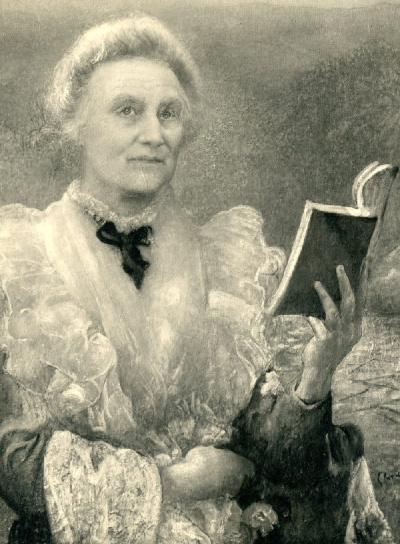
Alice Woods (1849–1941)
A friend and Girton contemporary of E.E. Constance Jones, Alice Woods was a progressive and compassionate educator, who advocated co-education, and moral instruction. A member of the Hampstead Ethical Institute, Woods was also President of the Association of University Women Teachers, whose secretary for 20 years was West London Ethical Society member Alice Gruner.
[Students of] Sophie Bryant (1850–1922)
Although mathematician and educator Sophie Bryant received her own education at the University of London, she was noted for challenging the stereotype of maths being an unsuitable subject for women, sending many of her students on to Girton College. Bryant was a pioneering member of the London Ethical Society (the UK’s first), as well as a driving force in the creation of the London School of Ethics and Social Philosophy. In both, she was vitally important to the early organised humanist movement.
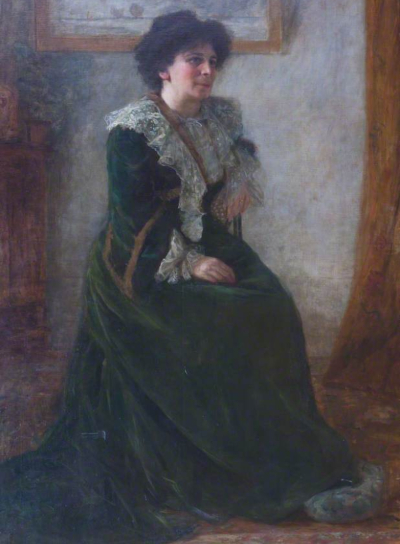
Hertha Ayrton (1854–1923)
Hertha Ayrton, born Phoebe Sarah Marks, was an electrical engineer and suffragist. From a Jewish but agnostic family, she read mathematics at Girton 1877–1881, and co-founded a mathematical club there. A friend of Marie Curie, Ayrton was a comparably passionate and devoted scientist, constantly experimenting. She was the inventor of the Ayrton flapper fan, which was widely used in the trenches of the First World War to dispel poison gas, over 100,000 of them being used on the Western Front. She was also an active supporter of women’s suffrage, and a promoter of women’s access to education.
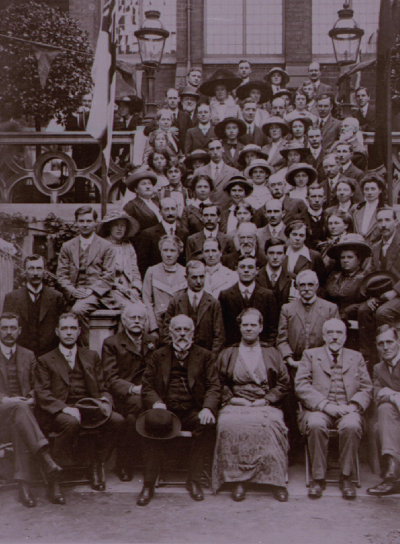
Ethel Sargant (1863–1918)
Ethel Sargant was an influential botanist: a graduate and honorary fellow of Girton College. She was the first woman to serve on the council of the Linnean Society, as well as the first woman President of a section of the British Association. Sargant’s active support of the Cambridge Heretics Society enabled Girton pupils to attend, and the group’s 100th meeting was held at her home. The Heretics were formed in opposition to the tradition of compulsory religious worship at Cambridge, as well as to act as a platform for open, sceptical discussion of all subjects, religious and philosophical. A prominent figure in the Heretics was Philip Sargant Florence, Ethel’s nephew and a longtime Vice President of the Ethical Union (now Humanists UK).

Dr. Mabel (1866–1916) and Grace Hardie (1864–1925)
Sisters Mabel and Grace Hardie both attended Girton College, and both went on to work in healthcare: Mabel as a doctor and Grace as a nurse. Mabel Hardie gained her medical degree from the University of Glasgow, and later enrolled with the French Red Cross, working as a surgeon in the Scottish Women’s Hospital in Troyes during the First World War. She died shortly afterwards, from breast cancer, in 1916. Both sisters were members of the West London Ethical Society, and Mabel Hardie was also an active suffragette.
Amy Maud Bull (1877–1953)
Amy Maud Bull, née Hicks, was a longtime member of the Hampstead Ethical Institute, and a devoted suffragist, taking an early and active role in the Women’s Freedom League. She read classics at Girton, and graduated in 1899 with a first class degree, having been awarded the Agnata Butler prize in 1897 and 1898, and the Thérèse Montefiore memorial prize in 1899. In 1913, with Sylvia Pankhurst, Hicks founded the East London Federation of the Women’s Social and Political Union (WSPU), and later joined the United Suffragists. In her will, she left significant bequests to both Girton College, and the National Trust.
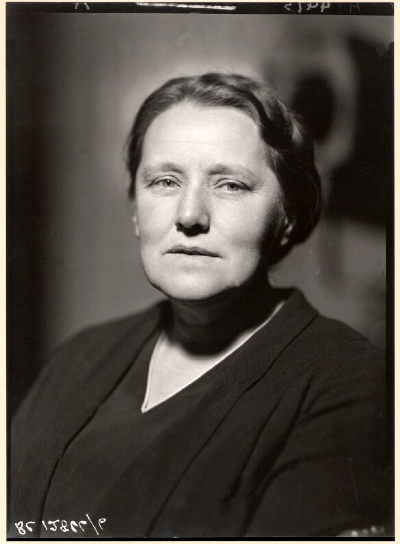
L. Susan Stebbing (1885–1943)
Lizzie Susan Stebbing was an influential and admired philosopher, who was President of the Ethical Union (now Humanists UK) from 1941. She began at Girton in 1904, reading history, but after an introduction to philosophy took up the moral sciences tripos. After gaining a master’s degree in philosophy from the University of London, she held various teaching positions, including as a visiting lecturer at Girton 1911–14. She was later the director of studies in moral sciences at Girton and Newnham, from 1920–1924. Stebbing was passionate about equipping non-philosophers with the tools of logic and critical thinking, particularly in engaging with advertising and propaganda. One of her best loved works was 1939’s Thinking to Some Purpose.
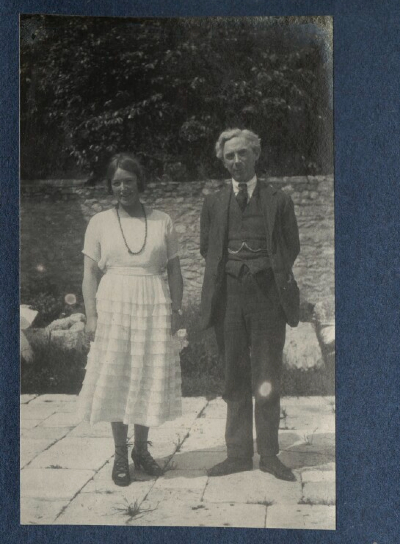
Dora Russell (1894–1986)
Dora Russell (née Black) was a writer, campaigner, and educator who embodied and championed humanist values throughout her life. At Girton, she achieved a first class in the medieval and modern languages tripos, and was an active member of the Cambridge Heretics, including as Secretary. As an activist in progressive politics, birth control, and nuclear disarmament, she devoted herself to increasing the freedoms of others, advocating reason, rights, and compassion in all aspects of life and law.
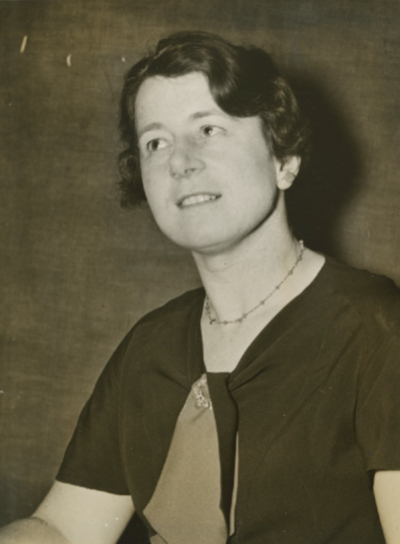
Dorothy Wrinch (1894–1976)
A close friend of Dora Russell’s at Girton, and a fellow member of the Heretics, Dorothy Wrinch was a pioneering mathematician and scientist. She won a scholarship to study at Girton in 1913, taking mathematics and moral sciences, and became an admirer and friend of Bertrand Russell. Chemist and friend of Wrinch, Dorothy Crowfoot Hodgkin, described her for an obituary in Nature as ‘enthusiastic and adventurous, courageous in the face of much misfortune, and very kind.’
Barbara Wootton (1897–1988)
Barbara Wootton was a prominent and eloquent humanist, and an enormously influential public intellectual. She obtained a first class in economics at Girton in 1919, subsequently devoting her life to applying her deeply held socialist and humanist principles as a writer, educator, and life peer. She was a Vice President of the Ethical Union (now Humanists UK) from 1954, and championed many causes central to its work, not least as a powerful promoter of secular morality. Her father James Adam, a classicist, had been a leading figure in the Cambridge Ethical Society.
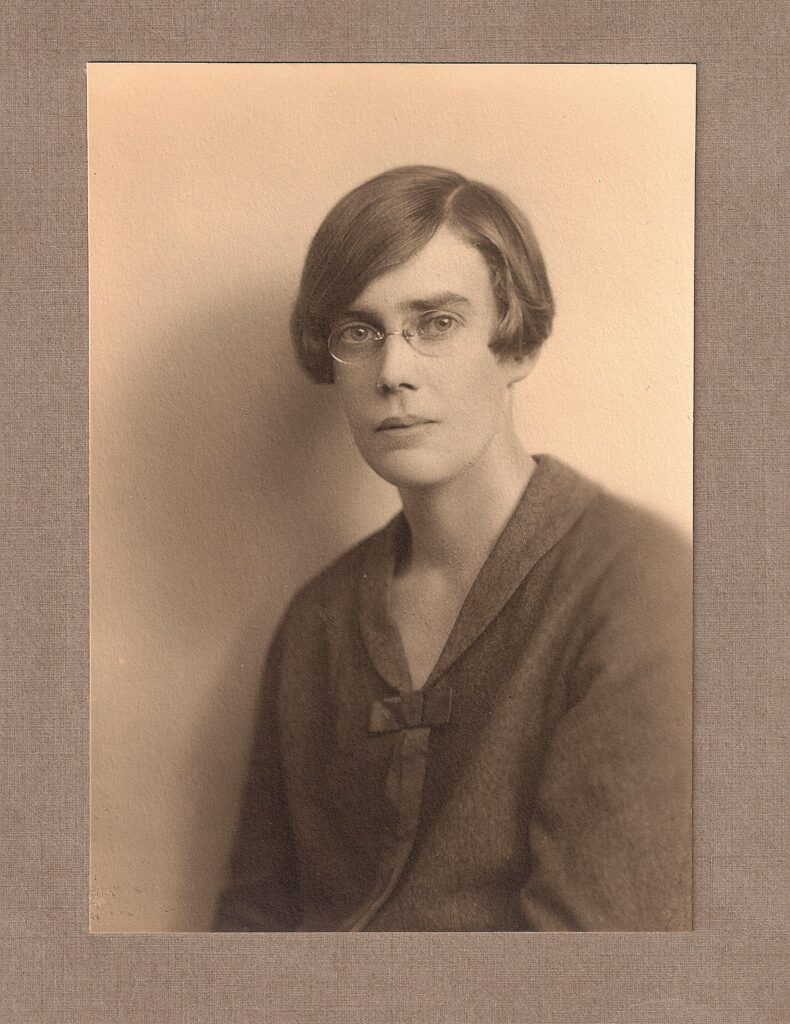
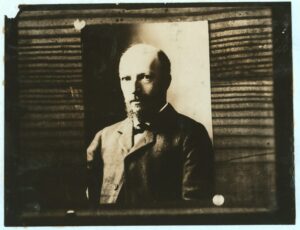
In order to find meaning to one’s life, one must find a meaning in the life of the [human] race. […]
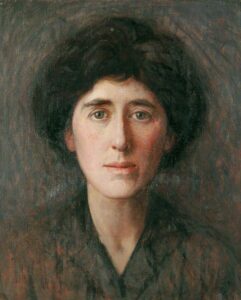
For many years a member of the Rationalist Press Association, and no longer associated with any church, she had devoted […]

The principles of humanism are positive and exacting commitments. People do not become Humanists merely on rejecting supernatural beliefs. But […]
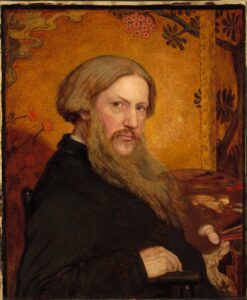
A cheerful and reverent Agnostic, whose whole life was one of unselfishness and devotion to lofty aims, who was tolerant […]